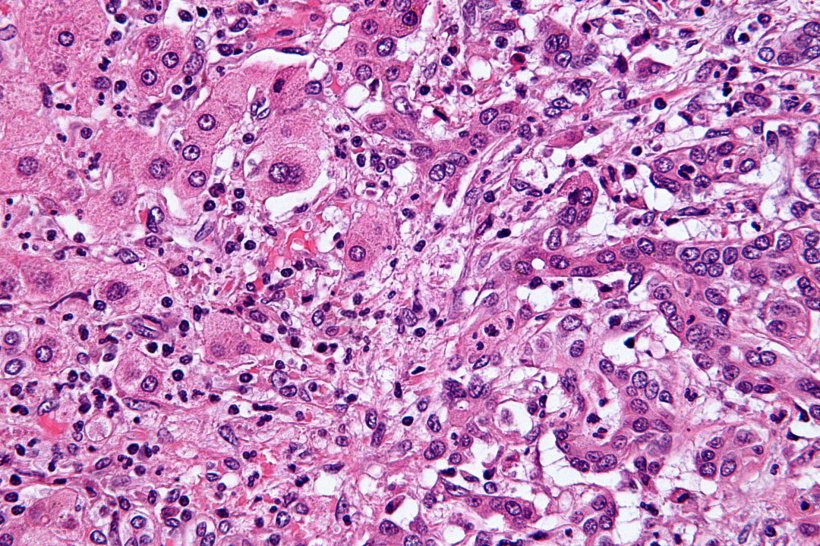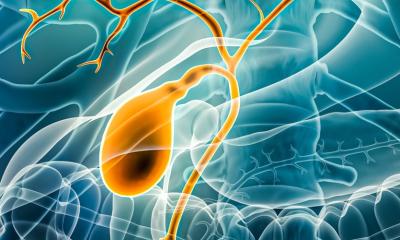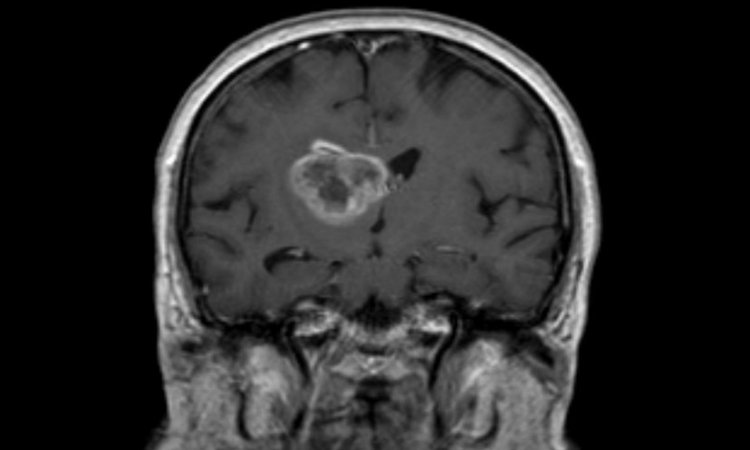
Image source: Nephron, Cholangiocarcinoma - very high mag, CC BY-SA 3.0
News • Variations in patient access
Biliary tract cancer: inequalities across Europe
Biliary tract cancer is increasing in incidence and mortality across Europe, with more people under the age of 60 years-old now impacted by the disease. However, despite this, knowledge about these tumours remains low both among health professionals and authorities, as well as in society in general.
New research results, co-led by the University of Glasgow, the University of Salamanca and the IRCCS Humanitas Research Hospital of Milan, have been published in two studies in The Lancet Regional Health - Europe.1,2 They highlight gaps in access to care and innovative treatments in different European countries. The results were also presented at the EASL Liver Cancer Summit in Paris 2025.
The lack of NHS reimbursement for molecular profiling for patients with bile duct cancer [...] means that our patients can miss out on therapeutic opportunities that could be beneficial and could impact on their life expectancy
Chiara Braconi
The papers analyse access to diagnostic tools and multidisciplinary care in different European countries, showing marked inequalities, especially in those with lower economic capacity. They also identify priority areas for improvement and highlight the differences in access to innovative treatments and molecular tests, factors that directly affect patients' therapeutic options. The research was carried out within the framework of the COST project “Precision medicine in biliary tract cancer (Precision-BTC-Network)”, led by the University of Salamanca, and the work involved more than 40 researchers and multiple institutions across Europe.
One of the main challenges identified by the research was that, although the European Medicines Agency (EMA) approves new treatments, their availability in each country varies significantly. As a result, funding of new treatments is implemented with large inequalities across Europe, limiting many patients' access to potentially more effective therapies.
Professor Chiara Braconi, University of Glasgow Chair in Hepatobiliary Oncology and last author of one of studies, said: “Our data highlight the gap between advancements of research and delivery of these advancements to our patients. While all patients should be treated equally and with the best treatments available independently on where they live, inequalities of clinical management of patients with bile duct cancer across Europe is a serious issue.”
Patients with biliary cancers can benefit from targeted therapies, drugs that target specific molecules in the cancer cells. To assess eligibility to these therapies, the analysis of cancer molecules has to be performed through what is called genomic profiling. Forty percent of patients with bile duct cancers have tumours harbouring these alterations and thus can be eligibile to targeted therapies. In Scotland some of these drugs are approved and made available to the patients. However, only a minority of these alterations can be tested as part of the NHS Scotland, limiting the identification of patients suitable for targeted therapies.
Professor Braconi added: “In Scotland, we are not currently able to implement international guidelines, given the lack of NHS reimbursement for molecular profiling for patients with Bile Duct Cancer. Which means that our patients can miss out on therapeutic opportunities that could be beneficial and could impact on their life expectancy.”
The series also include a Patients’ voice comment, where patients’ representatives from different charities across Europe echoed the messages above, and urge the overall community to act urgently to adopt impactful treatments for patients with biliary cancers. These results are being presented at the EASL Liver Cancer Summit, held in Paris between 20 and 22 February, with the aim of raising awareness and promoting strategies to reduce inequalities in the management and treatment of bile duct cancer in Europe.
Source: University of Glasgow
24.02.2025











